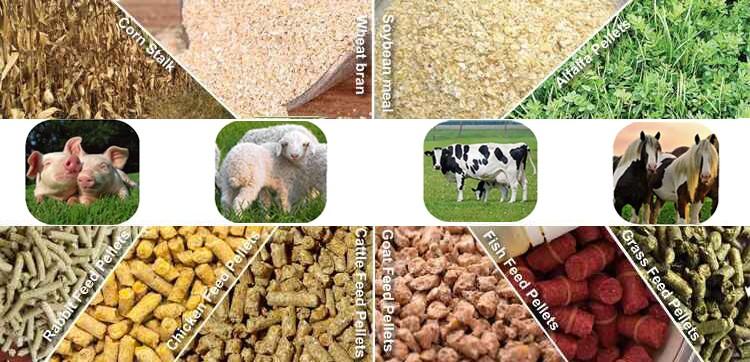Animal Probiotics Market Growth Supported By Rising Focus On Efficient Feed Conversion Ratios

The animal probiotics market is witnessing accelerated growth as livestock producers increasingly prioritize efficient feed conversion ratios to optimize productivity and reduce operational costs. Feed accounts for the majority of livestock production expenses, making efficiency a critical performance indicator for profitability. Probiotics, with their proven ability to improve nutrient absorption, digestion, and overall gut health, have become a cornerstone of modern feed management practices. This growing emphasis on feed efficiency is driving the widespread adoption of probiotic-based nutrition solutions across global livestock sectors.
Importance of Feed Conversion Efficiency in Modern Farming
Feed conversion ratio (FCR) measures how effectively animals convert feed into desired outputs such as meat, milk, or eggs. A lower FCR indicates higher efficiency and profitability. In a competitive agricultural environment where input costs are rising, improving FCR is essential. Probiotics contribute to this goal by supporting optimal gut function, enhancing digestion, and ensuring that nutrients from feed are fully utilized. Their inclusion in feed formulations helps reduce waste, improve energy utilization, and sustain consistent animal growth.
How Probiotics Improve Feed Efficiency
Probiotics work by maintaining a balanced gut microbiota, which directly influences nutrient absorption and digestion. Beneficial bacteria such as Lactobacillus, Bifidobacterium, and Bacillus species enhance enzyme activity, improve fiber breakdown, and reduce harmful microbial populations. This leads to better feed utilization and stronger immune systems. In poultry and swine, probiotic supplementation has been shown to reduce feed costs per kilogram of weight gain, while in dairy cattle, it supports higher milk yields without increasing feed input. These improvements translate into measurable financial gains for farmers.
Economic Drivers Behind Adoption
Feed prices represent one of the most volatile cost factors in livestock production. With global grain prices fluctuating and competition intensifying, farmers are seeking sustainable ways to maximize returns. Probiotics offer an affordable, natural, and reliable solution that enhances performance without the risks associated with synthetic growth promoters. The resulting improvements in FCR help farmers maintain profitability even in challenging market conditions. Over time, consistent use of probiotics contributes to better herd performance, reduced mortality rates, and improved economic stability.
Application Across Different Livestock Categories
The benefits of probiotics in improving feed conversion efficiency extend across all major livestock categories. In poultry, probiotics enhance intestinal health, allowing birds to absorb nutrients more effectively, resulting in faster growth and better feed utilization. In swine, they reduce gut inflammation, control harmful bacteria, and improve feed digestibility. Dairy cattle benefit from probiotics that optimize rumen function, enabling more efficient conversion of roughage into milk. Similarly, in aquaculture, probiotics promote better water quality and nutrient retention, reducing feed wastage and mortality rates.
Scientific Evidence and Performance Validation
Numerous studies have confirmed the positive correlation between probiotic supplementation and improved feed conversion ratios. Research shows that animals supplemented with probiotics achieve up to 10% better FCR compared to control groups. This improvement is attributed to the combined effects of enhanced digestive enzyme activity, reduced intestinal infections, and balanced microbial ecosystems. Field trials conducted across various climatic and feeding conditions continue to validate the consistent performance of probiotics as reliable feed enhancers.
Environmental and Sustainability Benefits
Enhancing feed conversion efficiency has significant environmental implications. More efficient feed utilization reduces resource consumption, minimizes waste production, and lowers greenhouse gas emissions associated with livestock farming. Probiotics help achieve these outcomes naturally by improving digestive processes and reducing nutrient losses. This aligns with global efforts to make agriculture more sustainable and environmentally responsible. By improving both economic and ecological performance, probiotics are establishing themselves as essential tools in sustainable livestock production.
Technological Innovations Supporting Efficiency
Advances in biotechnology and feed formulation are improving the effectiveness of probiotic additives. Encapsulation techniques protect microbial strains during feed processing and storage, ensuring they reach the animal’s digestive tract alive. Precision feeding technologies are also enabling more accurate dosing based on species, growth stage, and environmental factors. These innovations ensure consistent results and maximize the return on investment for farmers. Additionally, multi-strain probiotic formulations are being developed to deliver broader benefits and adapt to diverse feeding systems.
Regional Market Growth and Trends
The adoption of probiotics for improving feed efficiency is particularly strong in Asia-Pacific and Europe, where livestock farming is expanding rapidly. Asia-Pacific producers are leveraging probiotics to meet growing demand for animal-derived food while managing rising feed costs. In Europe, stringent regulations against antibiotic growth promoters have accelerated probiotic adoption. North America is also witnessing growth due to increased awareness about sustainable farming practices and profitability improvements driven by efficient feed utilization.
Future Outlook: Toward Precision Nutrition and Sustainability
As the global livestock industry evolves, precision nutrition will play a central role in improving feed conversion and productivity. Probiotics will be integral to this shift, supporting optimal nutrient assimilation and health management. The integration of data analytics, artificial intelligence, and real-time monitoring will further enhance how probiotics are applied, allowing farmers to make informed decisions about feeding strategies. In the long term, probiotics will remain a vital solution for improving feed efficiency while ensuring animal health and sustainability.
- AI
- Vitamins
- Health
- Admin/office jobs
- News
- Art
- Causes
- Crafts
- Dance
- Drinks
- Film
- Fitness
- Food
- Spiele
- Gardening
- Health
- Startseite
- Literature
- Music
- Networking
- Andere
- Party
- Religion
- Shopping
- Sports
- Theater
- Wellness


